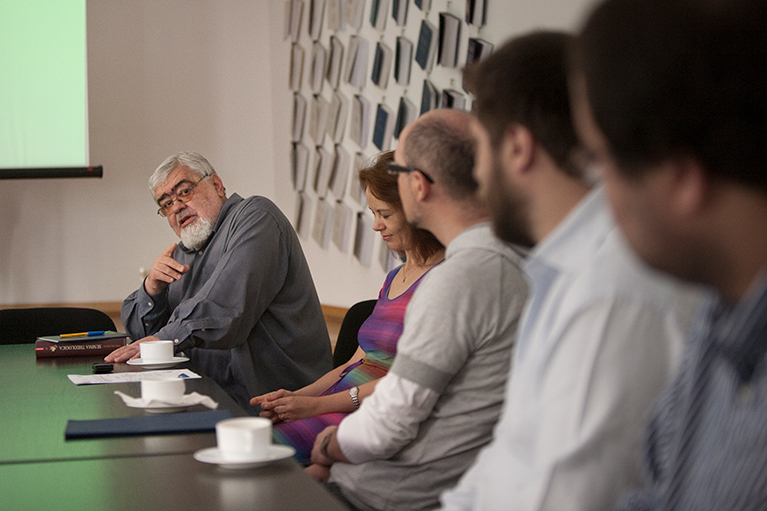Congratulations: 25 Years New Europe College in Bucharest
Even though the governments of their home countries are at loggerheads – at New Europe College (NEC), young researchers from all the Black Sea countries work together peacefully on joint projects – and thus fulfill the vision of NEC founder Andrej Plesu.
The times were politically turbulent, but also promising, when Andrej Plesu founded the New Europe College (NEC) in Bucharest in 1994. The former Eastern bloc was in the process of dissolving. Many states that had previously been controlled by Moscow reoriented themselves politically – also towards the West.
The NEC, founded as the "Institute for Advanced Studies", was to be a place for dialogue across old borders: Between scholars of the humanities and social sciences from an enlarged Europe and those from former Soviet republics. The NEC's bridge-building mission is inextricably linked to the biography of its founding director.
From exile to government
Andrej Plesu was born in Bucharest in 1948, where he studied art history and theory, became a professor at the Academy of Fine Arts, and also made a name for himself as a writer. In 1982 he was stripped of his professorship for political reasons. After several years working as a research assistant, he was finally banished to the isolated village of Tescani in 1989.
Shortly afterwards, however, the political upheaval catapulted him out of exile and back into the center of the country: He was appointed Romania's first Minister of Culture and even served his country as Foreign Minister from 1997-1999. He saw Romania's rapprochement with the European Union as one of his most important tasks.
Funded for many years by the Volkswagen Foundation
That NEC has benefited enormously from Plesu's international contacts, not least from his time as a diplomat. International colloquia and guest visits bring researchers from many countries to the NEC, where they exchange ideas with their Romanian colleagues. According to Plesu, his aim is to "re-establish South Eastern Europe as an academic location on the world map of science".
While in Hungary and Poland independent research institutions are sometimes put under massive pressure by governments, the NEC continues to enjoy the solidarity of international supporters. The Volkswagen Foundation has been involved since its founding year, first with a start-up grant, then with a grant for the institute building. The Fellowship program "Black Sea Link" followed later, and since 2012 the Foundation has been supporting the "Pontica Magna Initiative".
The NEC opposes aggressive nationalism with peaceful cooperation
What both funding programs have in common is the aim of the NEC to support a young generation of talented scholars and scientists with different projects in different disciplines, in particular from countries north and south of the Black Sea: Moldova, Ukraine, Russia, Belarus, Armenia, Azerbaijan and Georgia; but also from Central Asian countries and Turkey. They all meet in the rooms of the NEC to work on joint projects for one or two semesters. "Everywhere, we can find new generations of talented researchers in need of recognition and support," says Plesu, who serves the NEC Foundation today as President, with the aid of Valentina Sandu-Dediu as Rector. "We must build lasting bridges to partners abroad. The scientific elites must get to know each other better and learn from each other".
Jens Rehländer

